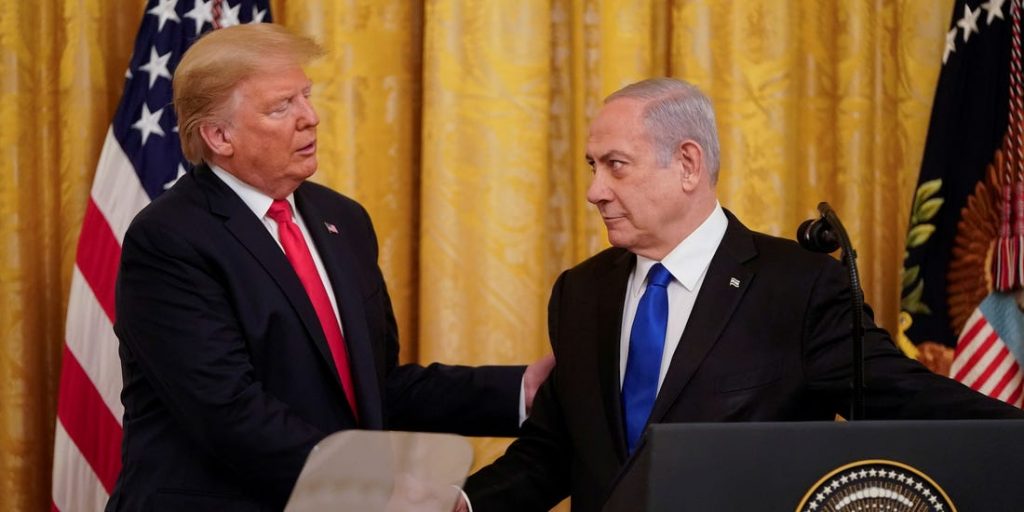
- ARAB NEWS
- 04 Jul 2025

Last week, the UAE foreign minister retweetedan article published in the New York Times. The opinion article, which was very critical of the Palestinian rejection of US President Donald Trump’s “deal of the century” peace plan, was titled “Every Time Palestinians Say ‘No,’ They Lose.” Despite being rejected by the Arab League, there are many voices in the Arab world asking Palestinians to negotiate. From their perspective, the Palestinians should call the Israeli bluff and negotiate instead of being stamped as rejectionists.
Meanwhile, UAE Minister of State for Foreign Affairs Dr. Anwar Gargash said: “The UAE underlines the necessity to support dialogue and start direct negotiations between the Palestinian and Israeli parties in order to ensure that nothing on the ground would undermine the just course of the cause.” And Abdulrahman Al-Rashed, the chairman of Al Arabiya’s editorial board, wrotein an op-ed: “It is vital that Palestinians grasp this opportunity to begin talks and explore the opportunity that lies therein before the goalposts of history move once again, and not necessarily in their favor.”
This is true in theory, but in practice it is very hard. There is a big problem facing any negotiations that could take place between the Palestinians and the Israelis on Trump’s proposed deal: There is no balance of power and the benchmark from which to start negotiations is very low. The Israelis are too strong to make a concession and the Palestinians are too weak to ask for one. Starting to negotiate based on the proposed deal would be marketed by Israel as the Palestinians having “accepted” it.
Actually, the deal is nothing but a reflection of the status quo, except with Israel giving up a swath of worthless land in the desert in exchange for prime land in the West Bank. There is also the money factor. However, the poverty of Palestine is political and not economic. It is caused by the lack of freedom of movement of people and goods and not by the lack of resources. The deal also pretends to give Palestinians sovereignty, but in fact it only gives them South African-style Bantustans with mutilated autonomy. Negotiations would actually be a good stunt for Benjamin Netanyahu’s government to show the international community that it is interested in peace, or that it is seeking peace. However, Israel does not feel the need for a peace agreement because it has the situation under control, at least in the West Bank, which is under the jurisdiction of the Palestinian Authority, with whom negotiations will ultimately take place.
On the other hand, the Palestinians cannot expect “honest” brokerage from the US. When announcing the plan, Trump said it was prepared by people who love the US and love Israel. He also mentioned Palestine as the ancient home of the Jewish people, without mentioning the Palestinians’ right to the land as indigenous people. From the outset, the plan was very much skewed in favor of the Israelis. What is a peace plan for Netanyahu is acceptance of subjugation for the Palestinians.
Since the Palestinians have no bargaining power and the broker is already biased toward the other party, fair negotiations can only happen if the Arab Gulf steps in on the Palestinian side to give Trump a counter-offer. They have leverage with the US and Israel is eager to forge strong relations with them. Despite reported “clandestine cooperation”with the Arab Gulf states, real strong relations cannot happen without full normalization. Israel wants engagement to bolster trade and create a united front against Iran. The Gulf states should be backing the Palestinians, throwing their weight on Trump and Netanyahu and putting forward positive as well as negative incentives in order to ask the Israelis for concessions.
Israel does not feel the need for a peace agreement because it has the situation under control, at least in the West Bank.
Dr. Dania Koleilat Khatib
However, we have another problem here. There is fatigue on the Arab scene. The enthusiasm for the Palestinian cause of the 1960s and 70s is fading away. Arabs feel they have enough problems of their own. They see Iranian expansionism and the emerging Turkish regional ambitions as more of a threat than Israel. In fact, given the rise of the Iranian threat, Arab Gulf states are becoming vocal regarding the need to form a united front with Israel to counter Tehran. In a nutshell, the Palestinian cause is no longer a priority.
The other cause of this fatigue is that they feel the futility of their help because the Palestinians are unable to put their house in order. The bitter infighting has divided the Palestinian front. Despite Saudi Arabia’s previous effortsto put Hamas and the PLO together, they are still competing over the leadership of the Palestinian people. In addition to that, corruption is a big issue. A big chunk of the generous Arab donations went into the pockets of leaders profiteering on the back of the Palestinian cause.
Nevertheless, Arab states should have a realistic approach toward the issue. There are no shortcuts. The Arab Gulf States should get involved on the Palestinian side if they want to solve the issue once and for all. If they don’t, then Turkey and Iran will jump to champion the cause, which is not in their interest.